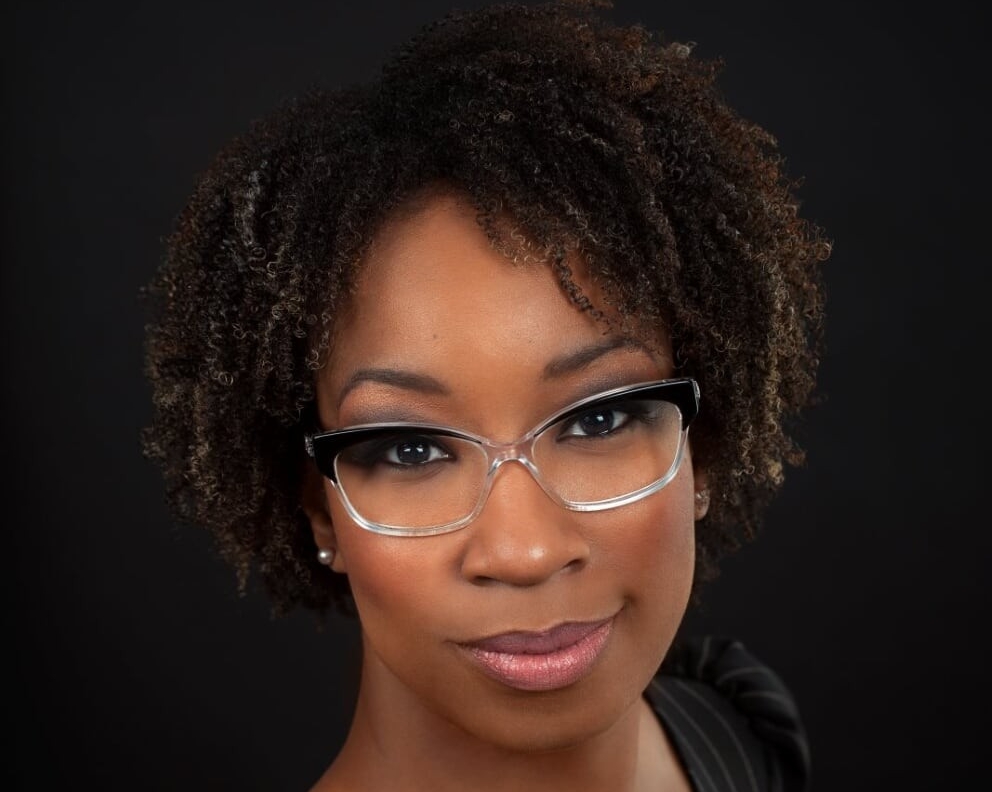CTV’s Maya Johnson gives virtual workshop on Racial Diversity in Journalism

Maya Johnson (BA Journalism 06) gave a virtual workshop on Oct 7 about racial diversity in journalism, a topic that has re-emerged in newsrooms this year following the police killing of George Floyd.
Johnson’s presentation is part of a virtual workshop series by the Department of Journalism that invites journalists to share their knowledge and experience on a variety of topics and propose ways that journalists can effect change.
“Maya Johnson continues to help the department to get better,” says David Secko, chair of the Department of Journalism. “It is so important to have our alumni back to speak about their experiences and to help our students deeply engage with issues of racial diversity and inclusion in journalism.”
Johnson, named Anglo TV Personality of the Year at the 2020 Gala Dynastie, says she felt compelled to participate in this series.
“I think journalism, as an industry, needs to take a hard look in the mirror and consider the lack of diversity in newsrooms across this country,” Johnson says. “Canada is not homogeneous and Canadian newsrooms should be a reflection of the various communities they serve.”
In her workshop, Johnson discussed various topics including the ways in which a lack of diversity can impact news coverage, what newsrooms can do to better reflect the diversity of their audiences and what journalists can do to improve their coverage of racialized groups.
“You may see people from racialized groups reporting or anchoring on TV, or see their bylines in papers and digital publications—but they're almost entirely absent from top management positions. These are the positions that hold the true decision-making power, and this has a very real impact on shaping coverage. Editorial decisions—what stories are covered, how much prominence they're given, which voices are included, and which ones are not—shouldn't be concentrated in the hands of one demographic group. Traditionally white males have been at the top of the newsroom hierarchy.”
Johnson explored the questions of objectivity that confront Black journalists when they’re covering issues of race.
She also spoke about her own personal experiences working as a Black woman in T.V. journalism and her journey to self-acceptance.
“Journalism is not immune from the reckoning on race that we're witnessing right now,” Johnson said. “As a Black woman sharing my own experiences and observations, I hope other Black people who were listening felt validated in knowing they're not alone in some of the frustrations they've felt in professional environments.”
Johnson’s opinion piece on CTV Montreal
During her workshop, Johnson shared how the police killing of Floyd affected her, a new mother to a son. She wrote her initial thoughts on a personal Instagram post.
She said she lost sleep over the news and, after confiding in close family and friends, decided she wanted to share her thoughts publicly.
She did so by penning an opinion piece on the matter that was featured on the CTV Montreal website.
“After George Floyd was killed, I decided I couldn't be silent. There's obviously an ongoing discussion about anti-Black racism and I think it's important to use my voice to be a part of the conversation,” Johnson said.
“As a public figure, I'm in a position of privilege in the sense that I have a platform and I can use it to connect with people. I welcome opportunities to do that.”
Takeaway from Johnson’s workshop
Her workshop gained significant interest not only with students, faculty and alumni but with many other notable Canadian journalists as well.
With over 100 participants registered, Johnson is happy with how successful it was and hopes the interest and engagement on the topic continues.
“I'm hoping there will be an ongoing conversation, a real dialogue, and an openness to considering things from a different perspective,” Johnson said.
“Managers and news executives need to be willing to listen to what their employees are telling them about their lived experiences, and not react defensively in the course of uncomfortable conversations about race and race-related issues in the workplace,” she says.
“I'm hoping the talk will encourage students to think critically about news coverage of racialized groups. I want them to be aware of all the subtleties and nuances that shape a story. I want them to pay attention to language and recognize the weight that words carry,” she adds.
“As a proud Concordia journalism grad, I'm really grateful to have had this opportunity.”
Find out more about Concordia’s Department of Journalism.
